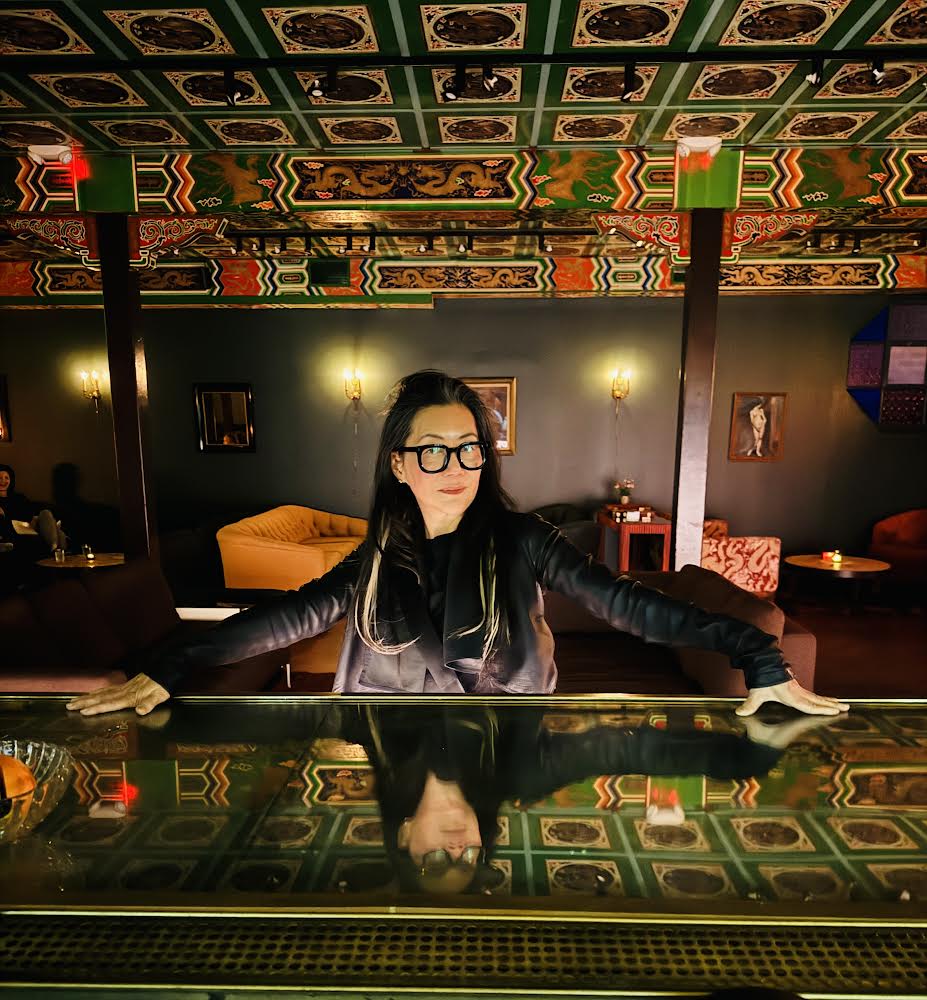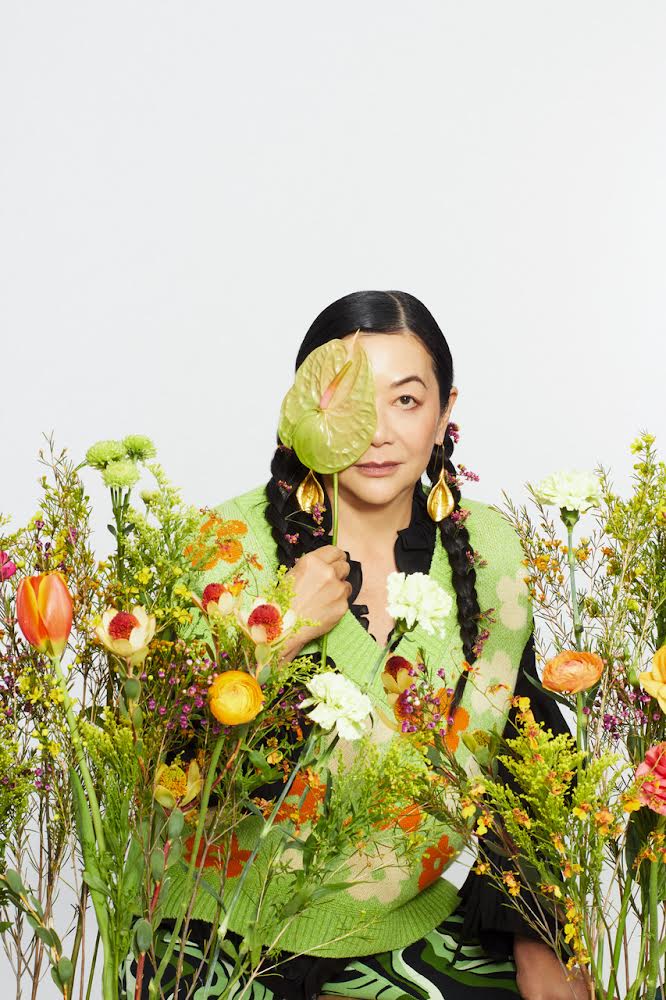Ophelia Chong, who describes herself as a “consultant, cannabis and psychedelics advocate, and cultivation mycologist,” launched Stock Pot Images in 2015 after noticing the negative and narrow stereotypes of cannabis users. The collection of images, which has since been sold to Adobe, was the largest library of stock images of cannabis aimed at diversifying the visual narrative of what a “stoner” looks like.
Originally from Canada, Chong moved down to Los Angeles to attend the ArtCenter College of Design. As a photographer and creative director, her career spans working with magazines, film festivals, music labels, and more. Since 2015, Chong has merged her visual design skills with a new mission: reimagining the narratives that shape negative associations about psychedelics, including designing Double Blind Mag’s Mushroom 101 Class. The Weekly spoke with Chong about the role of Asian Americans in developing and furthering the cannabis industry in the United States and beyond.
This interview has been edited for length and clarity.
South Side Weekly: I love talking to people with many hats on.
Ophelia Chong: I’ve had ten careers.
So let’s start from 2015. I wasn’t interested in cannabis at all until my relative came to Los Angeles from a country that prohibits the use of cannabis. And I had to educate myself very quickly by getting a medical card and entering my first dispensary and this is…before Prop 64 which made it state legal for recreational adult use. And so in 2015, it was still kind of sketchy. The dispensaries were a hodgepodge of cheap-ass furniture they got from bankruptcies. Always a guy with a gun. There were cameras everywhere. They were basically shark cages. It was pretty nasty. That’s what I walked into.
After that I went online. I went to get images and looked, [thinking] “well how do they see my relative?” So I typed in “stoner” and up came a whole page of images. I clicked on one, and it was a Black man. What it had for keywords were “addict,” “criminal,” “drug dealer.” Every derogatory word you’re going to find. And I thought, “this is how they view my relative.”
So I created Stock Pot Images and launched it three months after that. It was hard at the beginning because again, it was still in the illegal trade. So I had to do a lot of politicking and networking just to get my photographers on the farm. Within three years, I had the largest library of distinct strains. There were 3,000 of them all shot [from] above on a black backdrop. Plus, I had the largest library of model-released images of people smoking weed, everything from moms to grandmothers to Black men, brown, yellow, white, LGBTQ, trans. Every one of these models signed off on a model release that I had specifically, in red, say, “I acknowledge that I am holding a Schedule 1 drug and I allow stock images to license my image.” So can you imagine ten years ago someone allowing that thing? Oh, yeah, you can allow my industry to use an editorial or business and I’m smoking weed. That, even now, is still a taboo among some people.

In 2015, since I was the only Asian American that was in cannabis that was talking, what I needed was to find more to help educate Asian Americans. So that’s when I created Asian Americans for Cannabis Education [with co-founders Tiffany Wu and Monica Lo] and rolled that out. Oh, because of psilocybin, I became an expert mycologist. I learned everything I know now on Reddit and YouTube. And from one book from Dr. K. Mandrake on how to grow mushrooms. From there I taught 5,000 people through Double Blind Mag [a magazine focused on psychedelics] and also I’m an adviser on the board. And I’m featured in NatGeo as a mycologist growing functional mushrooms, in print and online. So that’s my story up to now.
That’s interesting. I recently learned that the first person to bring psilocybin or mushrooms to America was a Mexican woman.
Yes, Maria Sabina. It was May of 1957. In Life magazine, there’s a whole article on her in Mexico, the first photographs of her. [The media] were all for it.
Running parallel to Maria, in Chinese traditional medicine, we’ve been using the quote unquote, giggly mushroom for over 1,000 years. So it’s not only indigenous to [Latin] America, it’s indigenous across the world. And if you look into Chinese culture, the way we use mushrooms in general—reishi, cordyceps, lion’s mane—they’re heavily used in Chinese medicine. The fact that we had psychedelics taken from us is also a tragedy.
Can you expand on what you mean by “the psychedelics taken from us”?
China had to adopt the UN resolution on Schedule 1 drugs to enter the EU, and that was MDMA, LSD, cannabis and mushrooms. Cannabis and mushrooms are in our traditional Chinese medicine cabinet. That had to be excised. An entirely new generation have all been indoctrinated against both. What you notice here is how the Christian Chinese from China have landed in the space and joined Judicial Watch, which is a group [that Southern Poverty Law Center has] called out as a racist, white empowerment group. Asians joined [Judicial Watch] to fight cannabis in San Francisco and El Monte. Most of them are Christian evangelists. And that is how it created this whole anti-mushroom and anti-cannabis [sentiment] in China and in Chinese immigrants.
Was there a political reason for founding Asian Americans for Cannabis Education? Are you looking to build support for allies?
Oh, no, it was more…it’s about helping people understand what cannabis is through the eyes of people who look like you. Right? Because you can. I mean, there’s, of course, Sanjay Gupta and CNN and other people. Martha Stewart. I mean, there’s all those people talking about cannabis. But they don’t speak to a middle-aged Asian dad, right? It’s like, “Oh, that guy’s just like me. And he went to Columbia and Harvard and Oh, wow. He’s in cannabis?” Right? “Oh, that person went to Dartmouth, or that one went to Duke. And they left Altria [tobacco industry leader] to become the Senior VP of sales at Eaze [a weed delivery service]? Holy cow.” That’s what I want people to see. We’re not all stoners, that we actually have jobs. Some of us went to Ivy League schools, have a family, are attorneys and doctors. And it’s not what you think it is. You’ve been fed a lot of misinformation.
Wendy Wei is the Weekly’s immigration editor.

